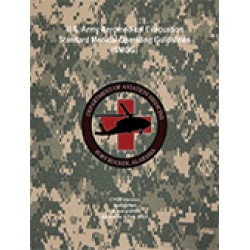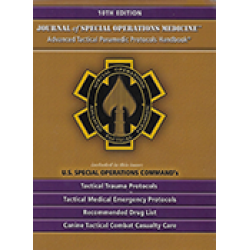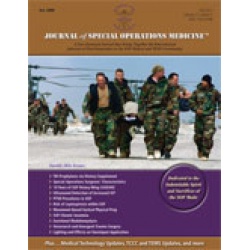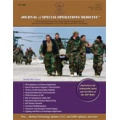Effect of Hetastarch Bolus in Trauma Patients Requiring Emergency Surgery
Ryan ML, Ogilvie MP, Pereira BM, Gomez-Rodriguez JC, Livingstone AS, Proctor KG 12(3). 57 - 67 (Journal Article)
If blood products are not available, current military guidelines recommend a hetastarch bolus (HEX, Hextend ™ 6% hetastarch in lactated electrolyte buffer, www. hospira.com) for initial treatment of hypovolemic shock in the field. We previously reported that a HEX bolus plus standard of care (SOC = crystalloid plus blood products) was safe during initial resuscitation in 1714 trauma patients. This study tests the hypothesis that HEX+SOC is more effective than SOC alone for volume expansion in trauma patients requiring urgent operation. Methods: From July 2009 to August 2010, the records from all adults who required emergency surgery within 4 hours of admission were screened for a retrospective cohort observational study. Burns, and those with primary neurosurgical or orthopedic indications, were excluded. The study population was comprised of 281 patients with blunt (n = 72) or penetrating (n = 209) trauma; 141 received SOC and 140 received SOC+HEX in the emergency room only (ER, n = 81) or the ER and operating room (OR, n = 59). Each case was reviewed with waiver of consent. Results: After penetrating injury, with SOC, the injury severity score was 17 and mortality was 12%; the corresponding values in the HEX(ER) and HEX(OR) groups were 19-21 and 8%, but these apparent differences did not reach significance. However, in patients receiving HEX, initial heart rate was higher, base deficit was lower, and hematocrit was lower (consistent with relative hypovolemia), even though blood product requirements were reduced, and urine output was greater (all ρ < 0.05). These effects were absent in patients with blunt trauma. Platelet consumption was higher with HEX after either penetrating (ρ = 0.004) or blunt trauma (ρ = 0.045), but coagulation tests were unchanged. Conclusion: HEX is safe for initial resuscitation in young patients who required urgent operation after penetrating trauma, but there was no apparent effect after blunt trauma. A bolus of HEX reduced transfusion requirements without inducing coagulopathy or causing renal dysfunction, but a randomized controlled trial is necessary to eliminate the possibility of selection bias.


 Español
Español 




